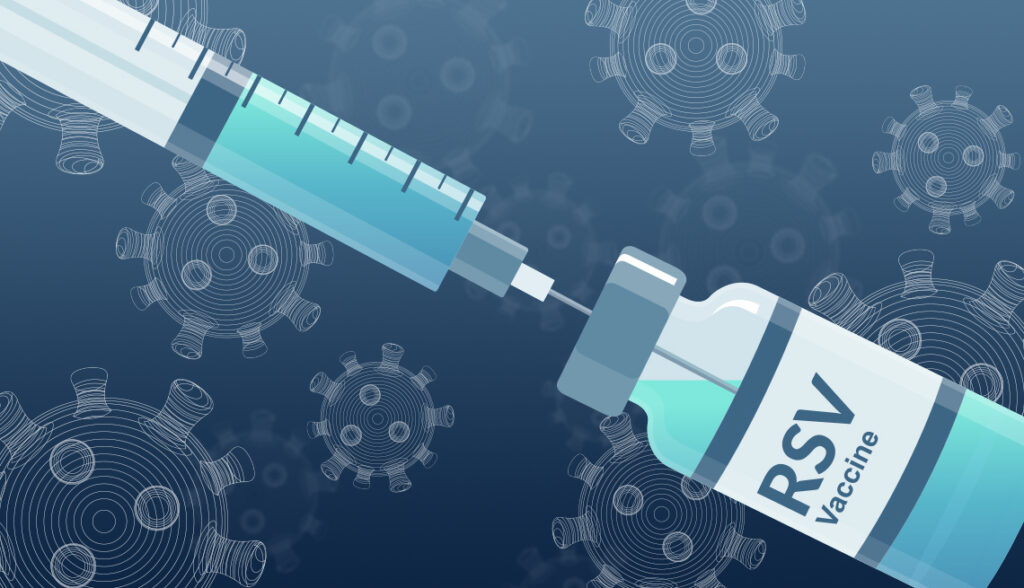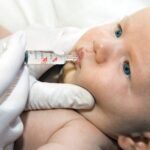Respiratory syncytial virus (RSV) is a major cause of lower respiratory tract infections in infants, particularly during the first months of life. It leads to thousands of hospitalizations and significant morbidity annually. Neonates are especially vulnerable due to their immature immune systems, and RSV seasonality means many are born during peak transmission periods.
Recent advances in maternal immunization have introduced a targeted approach: vaccinating pregnant individuals between 32 and 36 weeks of gestation to confer passive immunity to their newborns. This strategy has shown strong efficacy in reducing RSV-related complications in early infancy.

Understanding RSV Infection in Infants
RSV infects nearly all children by the age of two, but it poses the greatest threat to infants under six months. Clinical manifestations include:
- Bronchiolitis
- Pneumonia
- Apnea in neonates
- Respiratory failure in high-risk populations
Risk factors include prematurity, congenital heart disease, chronic lung disease, and exposure to tobacco smoke. RSV is a leading cause of pediatric hospitalization globally.
Mechanism of Protection Through Maternal RSV Vaccination
Maternal vaccination leverages transplacental antibody transfer to protect infants during the critical early months of life. IgG antibodies generated by the pregnant individual after RSV immunization cross the placenta efficiently, especially in the third trimester.
This strategy provides:
- Immediate passive immunity to the newborn
- Reduced RSV-related hospitalization
- Protection during peak RSV season
Timing of RSV Vaccination: Focus on 32 to 36 Weeks Gestation
Administering the RSV vaccine between 32 and 36 weeks of gestation ensures optimal antibody transfer and safety. This window maximizes transplacental passage while minimizing potential risk of early labor before sufficient antibodies are generated.
Clinical Rationale for Timing
- 32 weeks: Antibody transport via the placenta accelerates
- 36 weeks: Ensures high antibody titers before birth
- Post-36 weeks: Less effective due to reduced time for transfer
Vaccine Profile and Approval
Abrysvo (Pfizer)
- FDA-approved for use in pregnant individuals (2023)
- Single intramuscular dose
- Targets RSV A and B subtypes
- Demonstrated significant efficacy in preventing medically attended RSV illness in infants within first 6 months
Efficacy Highlights
- Approximately 82% reduction in severe RSV lower respiratory tract disease within 90 days of birth
- Sustained protection through 6 months of life
- Particularly effective when administered during 32–36 week gestational window
Comparison With Other RSV Prevention Strategies
| Prevention Method | Target Population | Timing | Type of Immunity |
|---|---|---|---|
| Maternal RSV Vaccination | Pregnant individual | 32–36 weeks gestation | Passive (via placenta) |
| Nirsevimab (Monoclonal Ab) | Infant | Postnatal (birth–8 mo) | Passive (injection) |
| RSV Vaccine for Adults | 60+ years | Anytime pre-season | Active (host response) |
Maternal immunization offers proactive, scalable protection without needing multiple postnatal interventions.
Safety Profile and Maternal Considerations
Clinical trials and post-market surveillance have confirmed the safety of maternal RSV vaccination:
- No increased risk of preterm birth, hypertensive disorders, or fetal anomalies
- Well-tolerated with mild local side effects (e.g., injection site pain, fatigue)
- Can be co-administered with Tdap and influenza vaccines
Contraindications are limited and include:
- Severe allergic reaction to vaccine components
- Acute febrile illness (temporary delay recommended)
Public Health Significance and Recommendations
CDC and ACIP Guidelines
- Recommended for all pregnant individuals between 32–36 weeks gestation during RSV season (typically September through January in the U.S.)
- Especially emphasized for pregnancies expected to deliver during RSV peak months
- Part of comprehensive maternal-child health strategy
WHO Outlook
While global recommendations are evolving, maternal RSV vaccination is anticipated to become part of standard prenatal care in countries with seasonal RSV burden.
Implementation Challenges and Equity Considerations
To maximize impact, healthcare systems must address:
- Access barriers in rural and underserved communities
- Vaccine hesitancy due to concerns about pregnancy interventions
- Education for obstetric providers on vaccine timing and benefits
Strategies include:
- Integrating RSV vaccination into routine prenatal care
- Public health campaigns targeting expectant parents
- EHR prompts and provider training
Future Directions in RSV Prevention
- Expanded global vaccine availability to low- and middle-income countries
- Development of combination vaccines targeting RSV, influenza, and COVID-19
- Further studies on long-term neonatal immunity
As the understanding of RSV immunity deepens, maternal vaccination may also serve as a model for future interventions in neonatal infectious disease prevention.
Maternal RSV vaccination between 32 and 36 weeks gestation represents a safe, effective, and evidence-based strategy to protect newborns during their most vulnerable period. This passive immunization approach reduces RSV-related hospitalizations, supports maternal-child health, and enhances preparedness for seasonal respiratory virus surges. Integrating RSV vaccines into prenatal care should be prioritized as part of comprehensive perinatal and pediatric public health policy.

